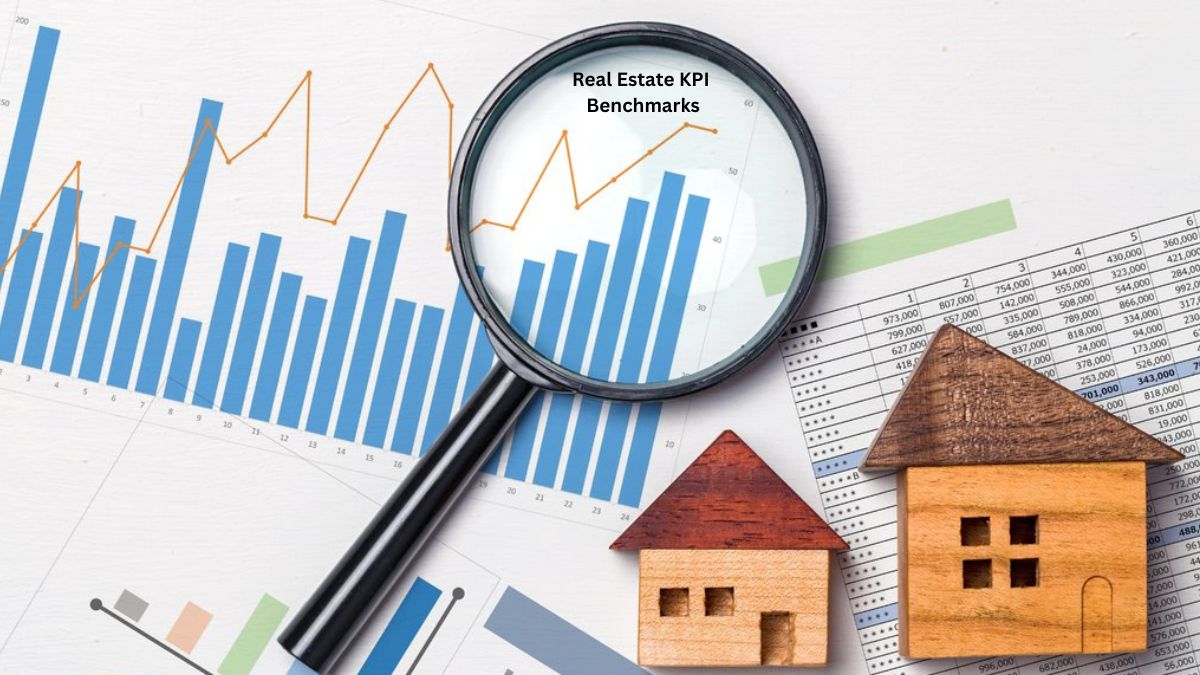In the competitive realm of real estate, Key Performance Indicators (KPIs) serve as invaluable navigational tools. They help measure a business’s progress, enabling data-driven decisions and strategies. While understanding and tracking your KPIs is crucial, comparing these metrics against industry benchmarks is equally important.
This article provides an in-depth understanding of real estate KPI benchmarks, how to use them, and their significance in enhancing business performance.
What are Real Estate KPI Benchmarks?
KPI benchmarks are industry standards that represent a specific area’s typical or average performance. In real estate, these benchmarks provide a comparative baseline against which you can measure your business’s performance.
Examples of real estate KPI benchmarks could include the average lead conversion rate, average time on market for property sales, or average rent collection period. These benchmarks vary depending on factors such as market conditions, geographical location, property type, and other variables.
Understanding KPI benchmarks helps you gauge where you stand in the industry and identify areas where your performance may be lagging.
The Significance of Real Estate KPI Benchmarks
Real estate KPI benchmarks play a vital role in strategic decision-making and performance improvement. They provide a frame of reference, enabling you to assess how your business performs relative to industry norms.
Benchmarks highlight areas of strength and weakness. If your KPIs consistently exceed benchmarks, it indicates areas where your business excels. Conversely, if your KPIs fall short of the benchmarks, it suggests areas that need improvement.
These benchmarks can also guide goal-setting. Instead of setting arbitrary goals, you can use industry benchmarks to set realistic and ambitious performance targets. This can inspire your team and drive performance improvement.
How to Use Real Estate KPI Benchmarks
Using real estate KPI benchmarks effectively involves a multi-step process. First, identify the KPIs that are critical to your business. Then, research and identify the corresponding industry benchmarks. You can obtain benchmark data from industry reports, market research, or benchmarking services.
Once you have this information, compare your KPIs against the benchmarks. If your performance aligns with or exceeds the benchmark, it indicates that your business is on the right track. However, if your KPIs lag behind the benchmarks, you need to investigate and address the causes.
Remember, while benchmarks are useful, they are not the ultimate goal. Your primary focus should be on achieving your business objectives and continuous improvement.
Limitations of Real Estate KPI Benchmarks
While real estate KPI benchmarks are invaluable tools, they also have limitations. Benchmarks represent average industry performance, and “average” does not necessarily mean “ideal.” Factors such as market conditions, business model, target audience, and property type can significantly influence what constitutes good performance.
Therefore, while benchmarks can guide you, they should not dictate your business strategy or goals. It’s important to consider your business’s unique circumstances and objectives when using benchmarks. And, always aim for continuous improvement, regardless of how you perform against benchmarks.
Locating Reliable Benchmark Data
The accuracy of your benchmark comparisons is only as good as the data you are using. Therefore, locating reliable benchmark data is paramount. Industry reports and surveys, trade publications, business networks, and real estate associations are good benchmark data sources. Be sure to use recent data from comparable markets and property types to ensure your comparisons are relevant and meaningful.
In some cases, you may need to invest in market research or benchmarking services to get the most accurate and up-to-date information. This investment can be worthwhile if it enables more informed and effective business decisions.
Applying Benchmarks to Your Business Strategy
Once you have the benchmarks and your KPI data, the next step is to apply these insights to your business strategy. If your KPIs are below the benchmarks, investigate why this might be. Look at your processes, systems, and strategies to identify areas for improvement.
On the other hand, if your KPIs are exceeding benchmarks, consider what you might be doing well and how you can capitalize on these strengths. Are there best practices that you can apply to other areas of your business? Is there a unique value proposition that you can leverage to further differentiate your business?
Benchmarks can also inform goal setting. If your KPIs are lagging, set goals that aim to meet and eventually exceed benchmarks. If you’re already performing well, set goals to sustain and further improve your performance.
Regular Review and Update of KPI Benchmarks
Like KPIs, benchmarks are not static. Market conditions, industry trends, technological advances, and other factors can influence benchmarks over time. As such, it’s essential to regularly review and update your benchmarks to ensure they remain relevant and accurate.
Updating your benchmarks allows you to stay aligned with the market and adjust your strategies accordingly. Regular review also ensures you continually challenge your business to improve and stay competitive. This process should be part of your regular business review and planning cycles.
Conclusion
KPI benchmarks provide valuable insights that can help drive your real estate business forward. They offer a frame of reference that allows you to evaluate your business performance, identify areas of strength and weakness, set realistic goals, and shape effective strategies. However, to make the most of benchmarks, it’s crucial to locate reliable data, apply insights judiciously to your business strategy, and regularly review and update your benchmarks.
Benchmarks are not the end goal but a guide that can steer your business in the right direction. Remember, the ultimate objective is not just to meet or exceed benchmarks, but to achieve your unique business goals and strive for continual improvement. In the dynamic world of real estate, such a proactive, data-driven approach can give you a competitive edge and propel your business towards long-term success.











